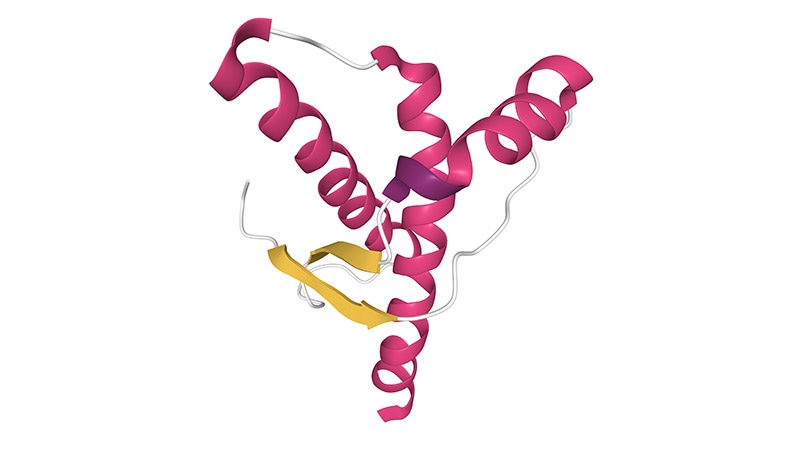insight - Computational Biology - # Protein Folding Mechanisms and Their Implications for Disease Treatment
Protein Misfolding Research Offers Promising Insights for Improved Cancer Treatments
Core Concepts
Discoveries by researchers Peter Walter and Kazutoshi Mori have revealed the cellular mechanisms that control proper protein folding, which is crucial for understanding and treating various diseases, including cancer.
Abstract
The content discusses the groundbreaking research conducted by Peter Walter and Kazutoshi Mori on the biochemical mechanisms that control the correct folding of proteins and their physiological functioning.
Key highlights:
Walter and Mori independently discovered the unfolded protein response (UPR), a process that allows cells to repair or eliminate misfolded proteins, preventing them from becoming toxic.
Their findings have revealed how cells control the biogenesis and degradation of proteins, which is essential for cellular physiology and the pathogenesis and treatment of diseases.
The researchers believe their discoveries can inspire the development of new effective treatments for multiple diseases, including Parkinson's, Alzheimer's, Huntington's, and ALS, which are characterized by the accumulation of misfolded proteins.
They emphasize the potential of this therapeutic approach for cancer, as cancer cells produce many misfolded proteins, and inhibiting the UPR could selectively eliminate cancer cells.
The researchers are collaborating with a company to develop new nontoxic chemotherapies that target the UPR in cancer cells.
They advocate for increased government and institutional funding for research, as it can lead to advancements that improve human life, rather than investments in weapons.
Data on Protein Misfolding Could Improve Cancer Treatment
Stats
"In cancers, the response to misfolded proteins provides disproportionate protection to these cells and keeps them alive."
"By inhibiting this process, we can develop new nontoxic chemotherapies that can help patients explore their situation. This occurs in all cancers because all have unfolded proteins. All have the activator IRE1. Therefore, generic chemotherapies that apply to all cancers, and not just chemotherapies specialized for each cancer, can be developed."
Quotes
"We published separate articles with our findings in the same year, 1993, in Cell. We competed for the same goal, and that competition made progress in this area spectacular."
"The purpose is not only in the knowledge we have created; this is just the basis, the foundation to see where we should and can apply it to help humanity."
Key Insights Distilled From
by N. at www.medscape.com 07-15-2024
https://www.medscape.com/viewarticle/data-protein-misfolding-could-improve-cancer-treatment-2024a1000d0g
Deeper Inquiries
How can the insights from protein folding research be applied to other complex biological processes to develop new treatments for a wider range of diseases?
The insights gained from protein folding research can be applied to other complex biological processes by understanding how cells control the biogenesis and degradation of proteins. This knowledge is crucial not only for cellular physiology but also for the pathogenesis and treatment of diseases. By identifying mechanisms like the unfolded protein response (UPR) and enzymes like inositol-requiring enzyme 1 (IRE1), researchers can develop targeted therapies that correct faulty protein folding or eliminate misfolded proteins. These insights can be extended to diseases beyond neurodegenerative disorders like Parkinson's and Alzheimer's, potentially offering new treatment avenues for conditions such as cancer, liver disorders, and autoimmune diseases. Understanding the molecular pathways involved in protein misfolding opens up possibilities for developing novel therapeutic approaches that address the root causes of various diseases.
What are the potential challenges and ethical considerations in developing generic cancer treatments that target the unfolded protein response?
Developing generic cancer treatments that target the unfolded protein response (UPR) poses several challenges and ethical considerations. One challenge is ensuring the specificity and effectiveness of the treatment towards cancer cells while minimizing harm to healthy cells. Targeting the UPR may have off-target effects that could lead to unintended consequences or adverse reactions in patients. Additionally, the complexity of cancer biology and the heterogeneity of tumors may require personalized approaches rather than generic treatments to achieve optimal outcomes. Ethical considerations include the potential for overgeneralization in treatment approaches, where patients may not receive individualized care tailored to their specific cancer type or genetic makeup. There is also a concern about the long-term effects of inhibiting the UPR on normal cellular functions and whether this approach could lead to the development of drug resistance in cancer cells. Balancing the benefits of targeting the UPR with the potential risks and ethical implications requires careful consideration and ongoing research to address these challenges.
How can the collaborative spirit and competitive drive that drove the discoveries of Walter and Mori be fostered in the scientific community to accelerate advancements in biomedical research?
Fostering the collaborative spirit and competitive drive that led to the discoveries of Walter and Mori can accelerate advancements in biomedical research by promoting interdisciplinary collaboration, sharing of resources and data, and encouraging healthy competition among researchers. One way to achieve this is through establishing collaborative research networks or consortia where scientists from different disciplines can work together on complex problems. By creating a culture of open communication and knowledge sharing, researchers can leverage each other's expertise and insights to make significant breakthroughs in their respective fields. Encouraging competition in a constructive manner, such as through scientific challenges or awards, can motivate researchers to push the boundaries of knowledge and drive innovation. Providing funding and support for collaborative projects and initiatives that bring together diverse perspectives and approaches can also stimulate creativity and accelerate the pace of discovery in biomedical research. Ultimately, fostering a culture of collaboration and competition in the scientific community can lead to more impactful and transformative outcomes in the field of biomedicine.
0
